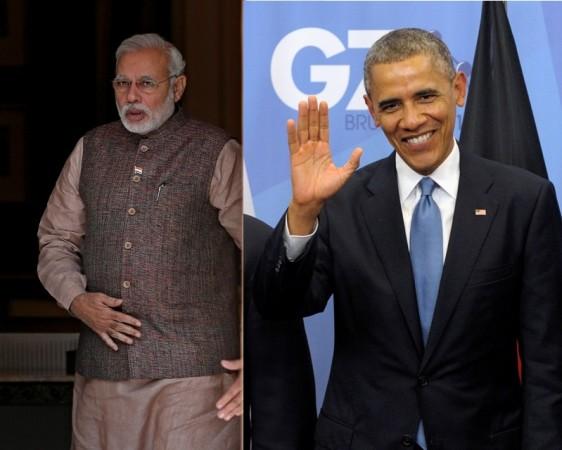
Recent revelations that the National Security Agency (NSA) spied on India's ruling Bharatiya Janata Party (BJP) in 2010 raised fresh concerns that yet another crisis may be on the horizon for US-India relations.
According to documents leaked by whistleblower Edward Snowden and published by The Washington Post, the NSA obtained broad legal authorization from a US court to spy on the BJP, while it served as India's primary opposition party. The surveillance claims prompted Indian officials to summon senior US diplomats to voice their objections and demand an explanation from their American counterparts.
The disclosure comes at a time when bilateral ties between Washington and New Delhi have experienced turbulence in recent months following the arrest of an Indian consular official in New York last year. Differences over a slate of more substantive issues, including trade, intellectual property rights, and pharmaceuticals have further strained ties between the United States and India.
The BJP's landslide electoral victory this past May was widely viewed as an opportunity for the two countries to revitalize ties and regain the momentum that has traditionally characterized US-India relations. But some now fear that this latest NSA spying controversy will derail those efforts. Such fears are unfounded, however, and reflect a misunderstanding of India's own unique attitude toward surveillance and of the strength and character of the US-India strategic partnership.
Indian officials have not allowed past revelations of American surveillance on India to affect relations with Washington. On the contrary, New Delhi has responded to prior instances of American spying with a relatively high degree of tolerance, if not plain acceptance. After documents leaked by Snowden last year disclosed that India was the fifth largest target of the NSA worldwide, for example, New Delhi's response was conspicuously muted.
Reports that India's Embassy in Washington and UN Mission in New York were key surveillance targets similarly elicited a tepid official reaction. Complaints lodged by New Delhi with Washington during these episodes have been largely perfunctory, intended to help blunt public criticism of the Indian government's subdued response to the spying claims without damaging ties with the United States. If the past is any indication of the future, the current row over the latest set of disclosures is no different.
New Delhi's outlier position toward American monitoring activities abroad is motivated by its aspirations regarding surveillance as an instrument of national security. India continues to confront a growing number of internal and external threats in a variety of forms. New Delhi has sought to significantly augment its surveillance capabilities to combat these threats, and, as a result, views the United States as a source of inspiration in this arena.
While these efforts remain controversial within India, igniting a heated public debate over privacy and civil liberties issues within the country, they are key to understanding New Delhi's consistently tempered reaction to American spying disclosures. Indian officials recognize that overly harsh criticism of the United States would undermine its own surveillance ambitions.
This reality was powerfully demonstrated last year when India's External Affairs Minister at the time, Salman Khurshid, defended the United States and its controversial PRISM surveillance program as an effective tool to combat terrorism. India's posture stood in stark contrast to the outrage expressed by a majority of the international community, which bitterly denounced the United States and demanded Washington dismantle the program.
The durability and multifaceted character of the US-India strategic partnership also makes it doubtful that the current NSA controversy will adversely impact foreign relations between Washington and New Delhi. The past decade has witnessed ties between the United States and India burgeon within a wide and diverse array of areas ranging from defense and security to trade and commerce. Cooperation between the world's two largest democracies has reached unprecedented levels compared to just five years ago.
But at the same time, the strategic partnership has faced a series of profound challenges. India's stringent nuclear liability law precluded either country from realizing any benefits from the US-India civilian nuclear deal signed by the two countries in 2006. New Delhi's close ties with Tehran and its dependency on Iranian oil became major sources of friction between India and the United States at a time when Washington sought to isolate the theocratic state over its disputed nuclear weapons program. The arrest of Devyani Khobragade last year sent bilateral relations in a tailspin.
In each instance, many critics predicted the demise of the US-India strategic partnership. In each instance, these critics were proven wrong. Neither country allowed their relationship to become hostage to any single issue and worked through outstanding differences meaningfully. The strategic partnership between the United States and India has proven remarkably resilient in the face of even the most formidable challenges.
The ongoing dispute over these most recent NSA revelations is unlikely to be an exception. This is particularly true given New Delhi's own ambitions surrounding surveillance. While enduring challenges in any partnership are inevitable, this most recent spying controversy will not be one of them.
Ronak D. Desai is a Non-Resident Fellow at the Belfer Center's India and South Asia Program at Harvard University.
















